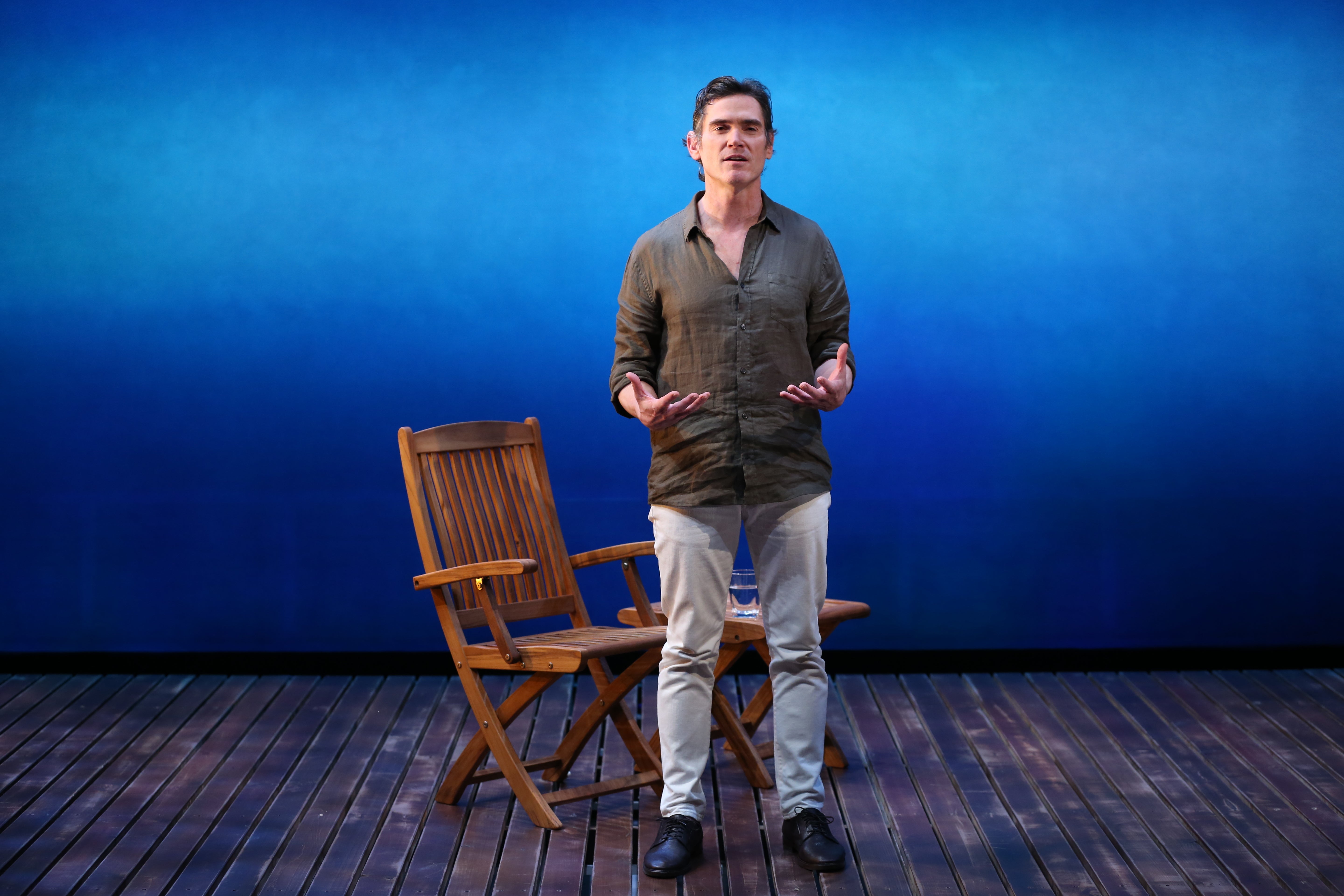Harry Clarke review: A strangely accented Billy Crudup stars in shlocky one-man show
Unlike ‘The Talented Mr Ripley’, ‘Saltburn’ and other stories of queer anti-heroes, ‘Harry Clarke’ lacks psychological depth – and star Billy Crudup’s estuary accent is something to behold

Your support helps us to tell the story
From reproductive rights to climate change to Big Tech, The Independent is on the ground when the story is developing. Whether it's investigating the financials of Elon Musk's pro-Trump PAC or producing our latest documentary, 'The A Word', which shines a light on the American women fighting for reproductive rights, we know how important it is to parse out the facts from the messaging.
At such a critical moment in US history, we need reporters on the ground. Your donation allows us to keep sending journalists to speak to both sides of the story.
The Independent is trusted by Americans across the entire political spectrum. And unlike many other quality news outlets, we choose not to lock Americans out of our reporting and analysis with paywalls. We believe quality journalism should be available to everyone, paid for by those who can afford it.
Your support makes all the difference.There are a couple of good reasons to see Harry Clarke. Maybe you’re a massive fan of prolific yet underappreciated Hollywood actor Billy Crudup (Almost Famous, Watchmen) and want to see him take the stage solo. Or maybe you’re a connoisseur of elaborately crappy English accents, racking them up like misshapen novelty teapots on your mental mantelpiece. If neither apply, you’re probably not going to find a huge amount to divert you in this straight-from-Broadway tale of a Midwestern chancer who adopts a rough-edged London alter ego.
Playwright David Cale’s narrative is a tribute to that much-loved cultural figure, the gay (or at least queer-coded) conman. From The Talented Mr Ripley to Saltburn, these stories of enigmatic, yearning anti-heroes feel like a product of 20th-century homophobia and the double lives it forced so many men to lead, their slippery charisma becoming a survival tactic, as much as a means to an end. It’s a defect in Cale’s writing, here, that the bluntly drawn titular prankster Harry Clarke has none of the inner darkness that would make sense of his baroque fabrications.
But Crudup’s performance lacks a certain menace, too. He plays a diffident, shambling loner whose real name is Philip. Growing up in the Midwest, he affects an English accent that infuriates his homophobic Dad, adopting the stuttering, quavering mannerisms of a geriatric home counties aristocrat. It’s ridiculous, partly knowingly so.
But when Philip adopts the persona of “Harry Clarke”, an estuary-accented tough guy with music biz credentials, Crudup’s tones reach new levels of awful. He’s said in interviews that he practiced his accent with his wife, the English actor Naomi Watts. Clearly her patience evaporated pretty quickly, because Crudup’s narrative is littered with Americanisms like “mom”, his tones drifting from East End to Essex to New York like the world’s most incompetent Uber driver.
Still, there’s a satisfying nimbleness to the way that Crudup tells his story. He comes into his own as he depicts the family of drug-addicted rich boy Mark, the object of Clarke‘s twisted romantic obsession. His voice rises in an ambulance siren of excitement as Mark’s shrill, Sade-obsessed mother, then his mannerisms soften into kittenish flirtatiousness as he embodies Mark’s spoilt sister with excruciating musical ambitions. Of course, his involvement with this overprivileged clan is going nowhere good. But the promised darkness never quite arrives, and nor does any kind of underlying message or shock twist. This is a straightforward, schlocky tale of a guy who rarely looks like anything other than the villainous weirdo he ultimately turns out to be.
Most stories of queer anti-heroes show these men from the outside, camera lingering lovingly on their haunted faces, and on the emotional devastation they cause. You’d hope that a solo show would make room for a bit more psychological insight, but although there are tantalising hints (his love of film noir, his repressed childhood), they aren’t explored enough to make him a 3D character.
Leigh Silverman’s understated direction and Alexander Dodge’s straightforward set design don’t do much to exploit the spooky potential of the intimate Ambassadors Theatre, either. All in all, it feels hard to justify a top ticket price of £195 for this minimally staged, 80-minute one-man Broadway import – head to one of London’s homegrown pub theatres for all the intrigue, at a tenth of the price.
Ambassadors Theatre, until 11 May
Join our commenting forum
Join thought-provoking conversations, follow other Independent readers and see their replies
Comments